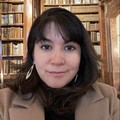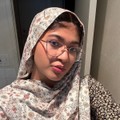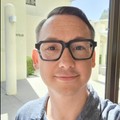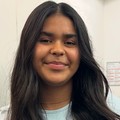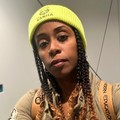The heat was unforgiving, 122 degrees, the kind of heat that makes you question life itself if you’re not careful. We were sailing the Indian Ocean aboard the USS John C. Stennis in 2012, surrounded by the smell of jet exhaust, sea salt, sweat, and the symphony of the tasks centered around the mission at hand. The sky was cloudless. The sun relentless. The winds gave the steel ship we called home during a 9-month deployment a royal fight every single day, in a way only mother nature could. On the flight deck, every second mattered. Every movement carefully planned, with back up plans from A to Z, while every decision made could be life or death.
I had just stepped behind an F/A-18 fighter jet when the jet blast knocked me clean off my feet and into the landing area of the flight deck. A jet preparing to land was waved off just in time. After I had landed headfirst. My cranial helmet, standard issue, absorbed the blow but split right down the center at my forehead. I opened my eyes in a daze, my head and ears throbbing from the deafening roar of helicopters and the fighter jet the flew right above me. It felt like my skull was about to implode. To this day, I still hear that deep sound inside my head, a reminder of how in just a few seconds, life can drastically change.
That blast left me with a concussion and a severe back injury. I pushed through the pain and served with pride until I separated honorably from the US Navy on April 20, 2014. At the time, I didn’t think much about the date. But looking back now, I see it clearly: 4/20 was a signal.
The accident left me with a sleeping disorder and PTSD. After a 3-year battle with highly addictive prescription drugs and their collateral damage, another veteran introduced me to medical cannabis. That one night of good sleep, changed everything.
The War on Drugs, Cannabis Prohibition, and My Fight for Social Equity in San Diego
Social issues and humanitarian causes often reveal the interconnectedness of our global community. While some injustices are more visible, like hunger or war, others are embedded in policy, economics, and legal systems that quietly perpetuate cycles of harm. For me, one such issue has always been at the forefront: the devastating impacts of the War on Drugs and cannabis prohibition, particularly in my home city of San Diego.
Historical Context
To truly grasp the significance of this issue, we must examine its origins. The War on Drugs was formally declared by President Richard Nixon in 1971, but its roots go deeper, intertwined with racial and political motives. From the 1930s “Reefer Madness” era demonizing Mexican migrant workers and Black jazz musicians for cannabis use, to Nixon’s domestic policy advisor admitting decades later that targeting cannabis was a means to criminalize anti-war activists and Black communities, cannabis prohibition has always been about control, suppression, and systemic racism.
San Diego was no exception. Throughout the 1980s and 1990s, cannabis arrests surged disproportionately in Black and Brown neighborhoods. Despite similar usage rates across racial groups, people of color were far more likely to be arrested and convicted for cannabis offenses. This resulted in shattered families, lost economic opportunities, barriers to housing, and generational trauma that still echoes today.
Growing up as an Afro-Latina woman in a military family, I saw firsthand how systems of oppression operate subtly yet pervasively. Friends and community members faced charges for minor cannabis possession, leading to criminal records that barred them from employment or education opportunities. Entire neighborhoods were overpoliced under the guise of drug enforcement, instilling fear and distrust in law enforcement and government institutions. The War on Drugs did much more damage than incarceration; it eroded hope, stability, and trust.
Even as California legalized medical cannabis in 1996, followed by recreational cannabis in 2016, the damage persisted. Legalization came with new barriers: high costs of entry into the regulated market, complex compliance requirements, and continued arrests, many of whom turned to underground sales due to lack of access to capital.
In San Diego, despite adult-use legalization, the city’s initial licensing programs failed to prioritize those disproportionately impacted by prohibition. Less than a handful of licensed businesses are owned by Black or Brown entrepreneurs, while large corporate operators dominated the market. Such course of action deepened the inequities created by prohibition.
Roll Up For Equity
Witnessing these injustices fueled my determination to become an advocate for change. In 2021, I because one of the spokespersons for Roll Up For Equity, a grassroots postcards activism campaign aimed at amplifying community voices during crucial San Diego City Council meetings on cannabis policy.
The concept was simple but powerful. We designed postcards with impactful imagery and direct calls to action urging council members to implement an equity program that prioritized licenses for people from communities harmed by the War on Drugs. We distributed these postcards at local community centers and activist gatherings, encouraging residents to write their district council members and physically drop off the postcards at council meetings.
I remember the first time we mobilized: walking into City Hall with stacks of handwritten postcards, each representing a resident’s story, demand, or plea for justice. Council members’ aides gathered them, flipping through messages like “Equity means opportunity for all” and “Repair what was broken in Southeast San Diego.”
This campaign was about reclaiming power. For decades, marginalized communities had been silenced or ignored in cannabis policy decisions in our city. Roll Up For Equity reminded local government that we were watching, organizing, and refusing to be left behind.
Storytelling as Activism
Activism often takes many forms, and for me, storytelling has always been my sharpest tool. I decided to document the Roll Up For Equity campaign and the broader fight for cannabis social equity in San Diego in a short documentary titled Roll Up For Equity.
The process was emotional and transformative. I interviewed community leaders, harmed individuals seeking second chances, activists fighting for equity policies, and even entrepreneurs navigating systemic barriers. We filmed council meetings where decisions affecting entire communities were made, often with little public input. We captured the resilience of Black and Brown activists demanding seats at the table they helped build.
When Roll Up For Equity premiered at the San Diego Short Film Festival in 2024, it was received with powerful acclaim. The audience’s nods and silent reflection during post-screening discussions reaffirmed the urgency of this work. Winning Best Local Filmmaker for the documentary was an honor, but more importantly, it was an acknowledgment of the communities whose stories were finally being told on their own terms.
My work in cannabis advocacy, from Roll Up For Equity to producing award-winning documentaries, is rooted in my belief in justice, integrity, and collective liberation. As an Afro-Latina woman, I carry the legacy of ancestors who fought against systemic oppression with dignity and vision. Pursuing my Master’s in New Media Journalism has deepened my skills in investigative reporting, multimedia production, and strategic communication; tools I use daily in my activism.
I believe storytelling is the bridge between knowledge and empathy, policy and people, harm and healing. Every assignment in my new media journalism masters program at Full Sail University has added value to my career as an independent producer and entrepreneur, refining my ability to illuminate real issues that inspire actionable change.
The War on Drugs and cannabis prohibition are not abstract policy debates. These topics are human rights issues with real-world consequences for marginalized communities. Through activism campaigns like Roll Up For Equity and storytelling projects like my documentary, I aim to contribute to dismantling oppressive systems and replace them with structures rooted in equity, systemic change, and opportunity.
My commitment to this cause is not temporary. It is my life’s work. As I continue to grow as a journalist, filmmaker, and advocate, I remain dedicated to ensuring that our communities are not just included in the budding cannabis industry but that they thrive within it. Because justice delayed is justice denied, and true equity can no longer wait.
